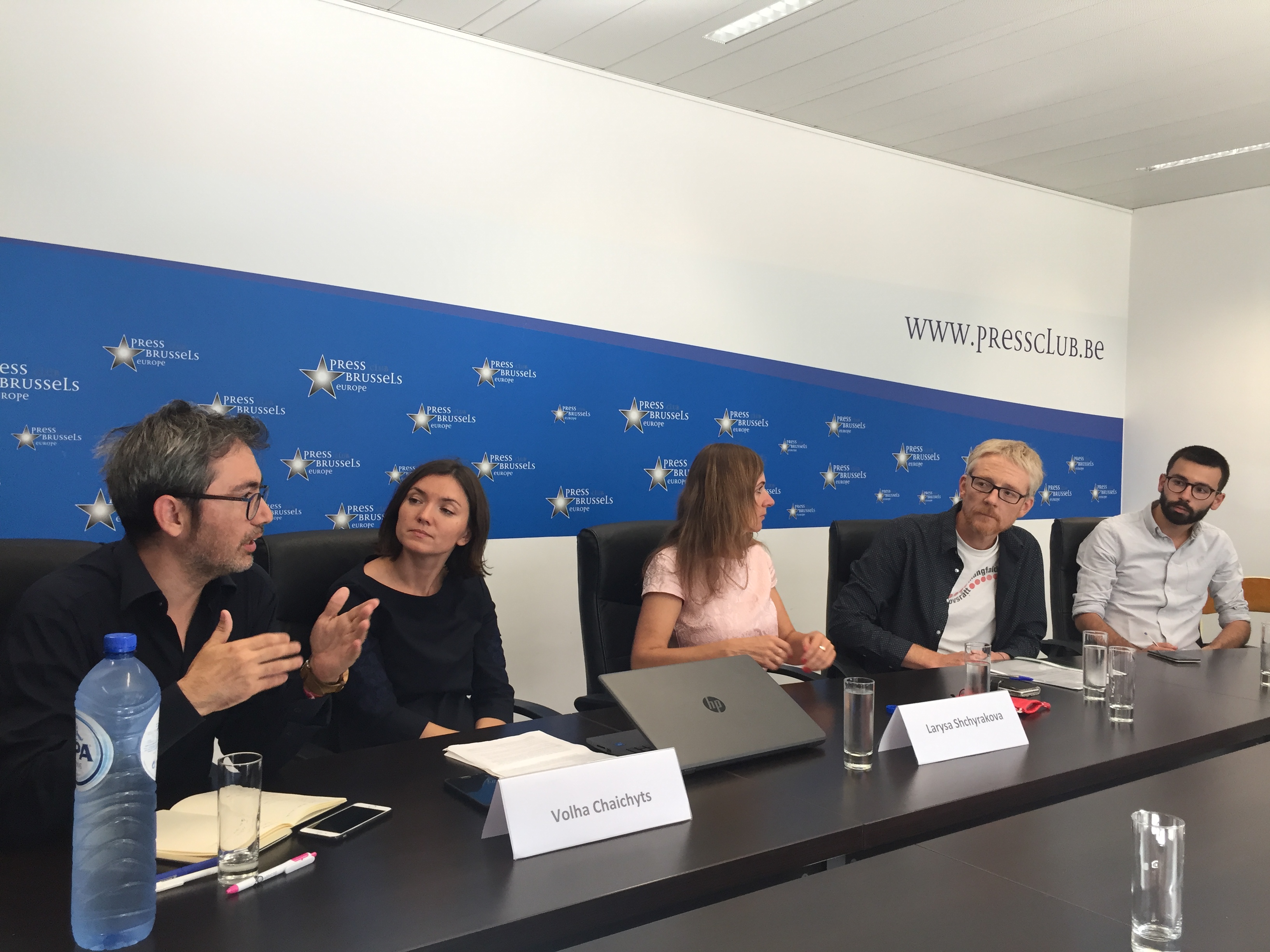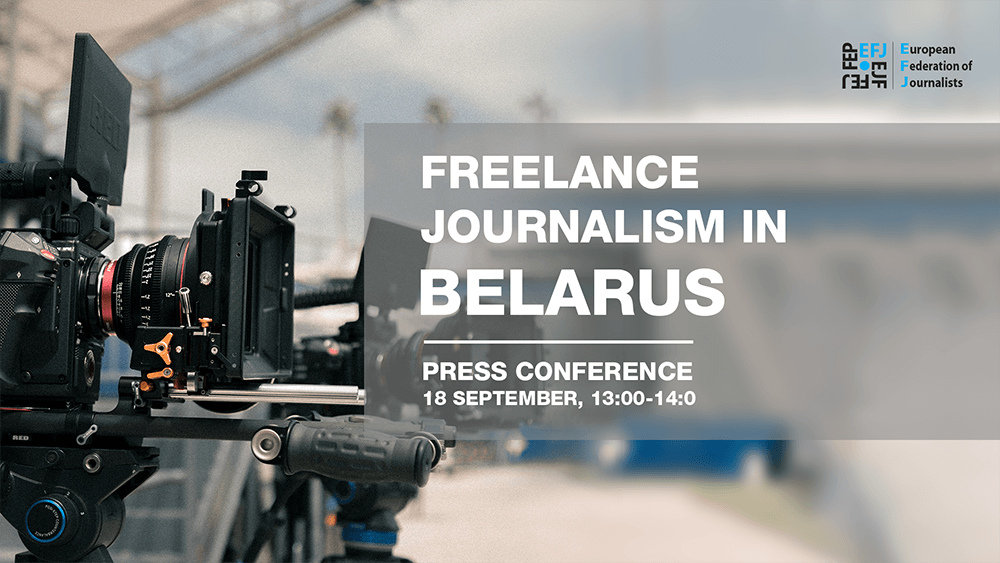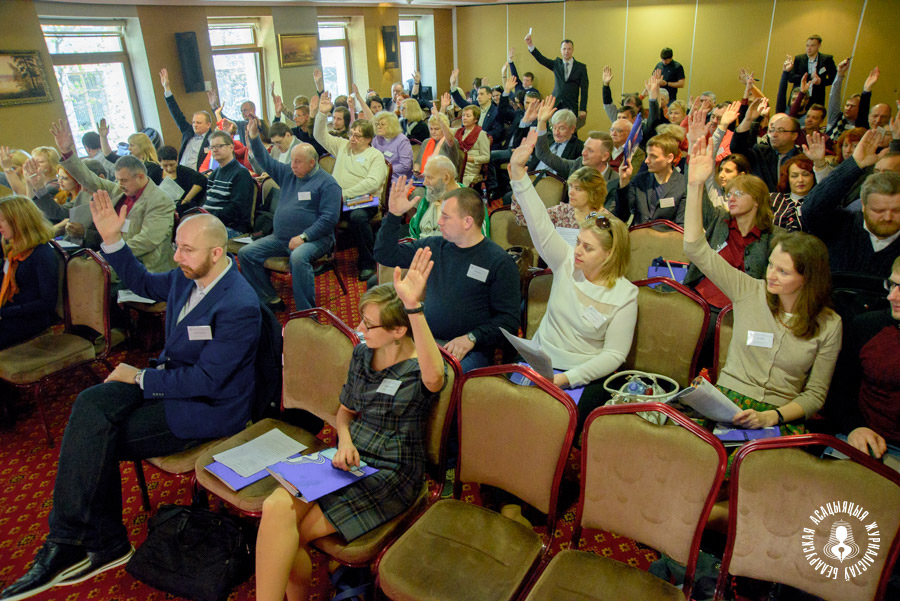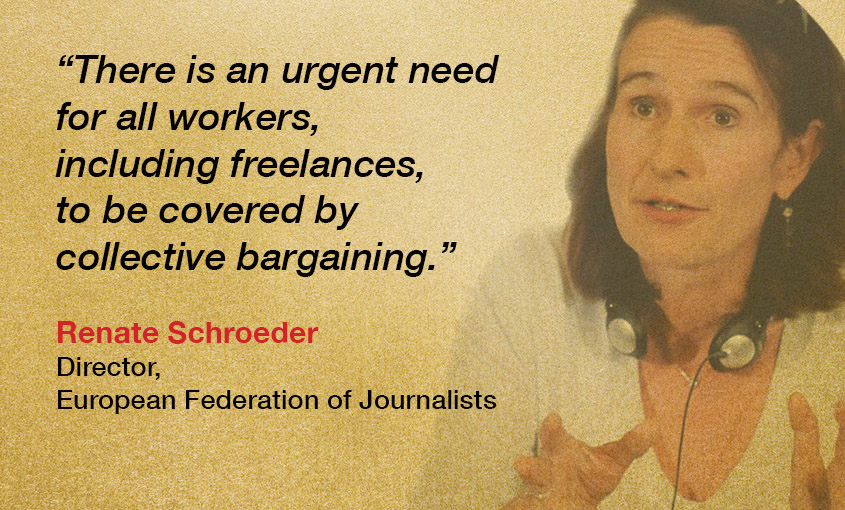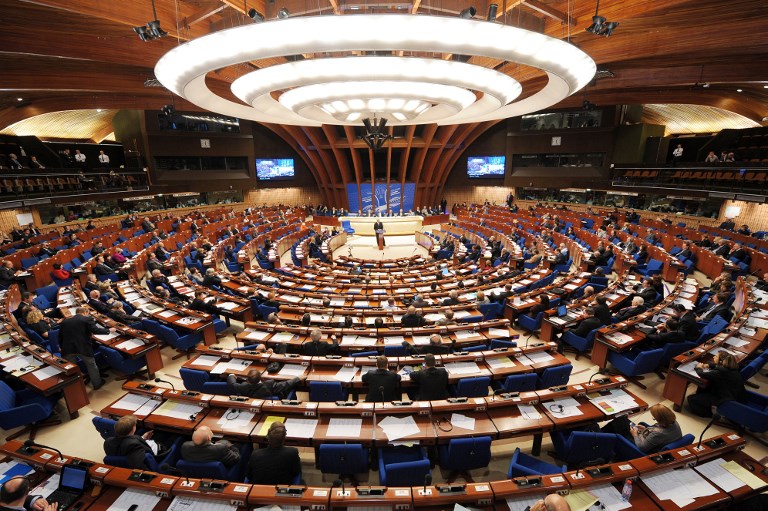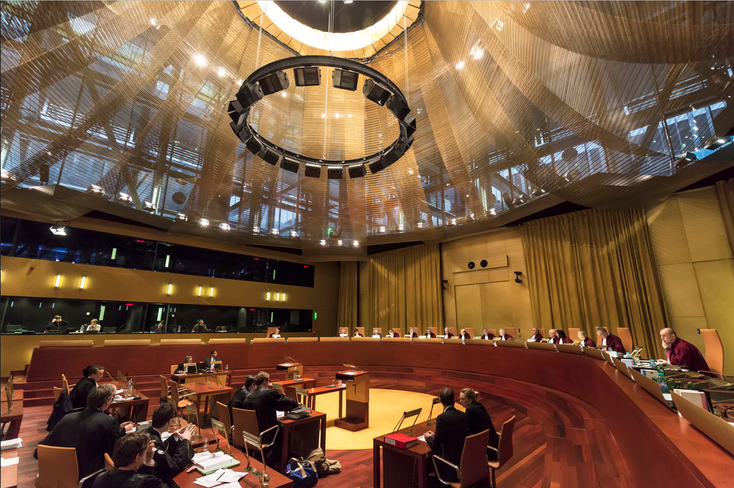The importance of cooperation between freelancers across borders in Europe has increased over the years. Colleagues inspire each other; union workers share ideas and experiences.
Contracts and fees, training, authors’ rights, and professional standards are all key issues for the growing – and ever more precarious- freelance community of journalists. Innovative financing models, which can give freelance journalists new possibilities/niches in media, are being explored by the EFJ and its affiliates.
The European Federation of Journalists (EFJ) Authors’ Rights Expert Group (AREG) and the Freelance Experts’ Group (FREG) strive to defend and to promote freelance rights. We say to our staff colleagues: in order to defend your rights and conditions of work, you can do nothing more effective than to promote the highest standards for freelances.
The Freelance Experts’ Group’s focus for the coming years’ is based on the EFJ’s working programme:
- collective bargaining for all, including freelancers;
- ensure competition law does not undermine the right to collective bargaining;
- organising and training for freelances including on safety.
Links to freelance sites of our unions
- Belarus BAJ : http://freelance.baj.by/
- Belgium AJP: http://www.journalistefreelance.be/?lang=fr
- Belgium VVJ: http://www.journalistenloket.be/vademecum-voor-freelancers/
- Croatia SNH: https://www.snh.hr/en/
- Denmark (Dansk Journalistforbund): https://journalistforbundet.dk/freelancer-selvstaendig
- Finland (Suomen Journalistiliitto): https://journalistiliitto.fi/fi/free/
- France SNJ: http: //www.snj.fr/menu-pigistes
- France CFDT: http://pigistes-cfdt.fr/
- France SNJCGT: https://snjcgt.fr/dossiers/pigistes/
- Germany DJV: https://www.djv.de/startseite/info/beruf-betrieb/freie.html
- Germany dju in ver.di: https://dju.verdi.de/freie/freie-journalisten
- Italy FNSI: https://www.fnsi.it/sportello-online
- The Netherlands NVJ: https://www.nvj.nl/freelancers
- Norway NJ: https://www.nj.no/vare-lag/nj-frilans/
- Sweden SJF: https://www.sjf.se/aktuellt/202007/frilans-pa-vag-att-bli-arbetslos
- Switzerland (Syndicom): https://syndicom.ch/mitgliederservice/pensionskasse-freelance/
- Switzerland (Impressum): https://www.die-freien.ch/
- Turkey (Disk basinis): http://www.diskbasinis.org/index.php/tr/ajanda/freelance-calisanlar-disk-basin-is-te-orgutleniyor
- Uk and Ireland NUJ: https://www.nuj.org.uk/tags/freelance/

